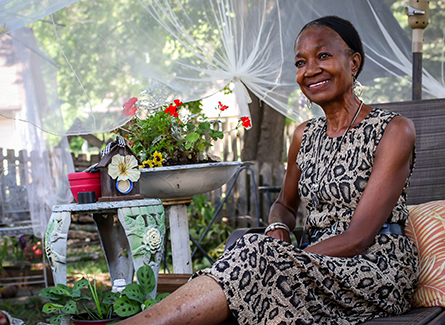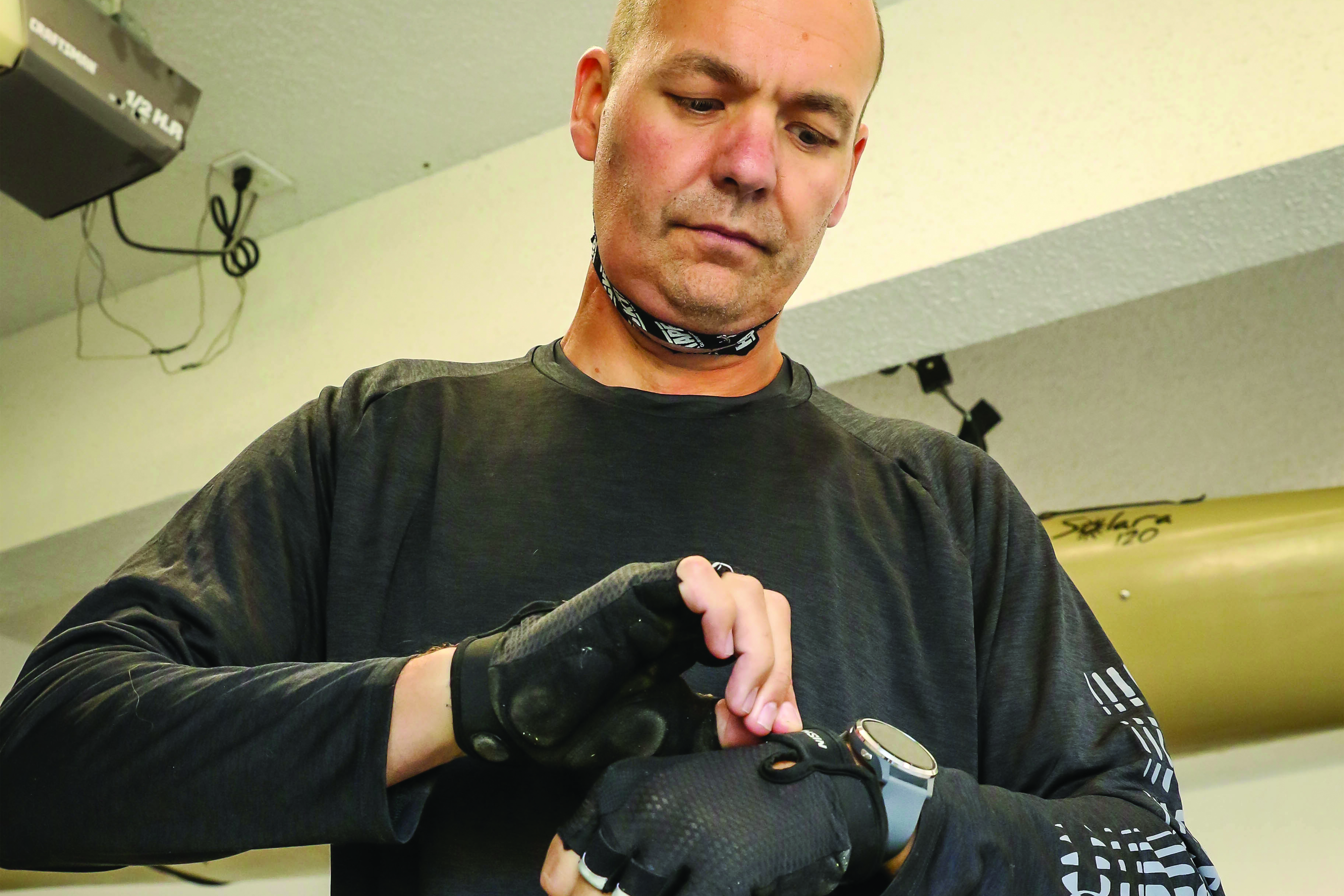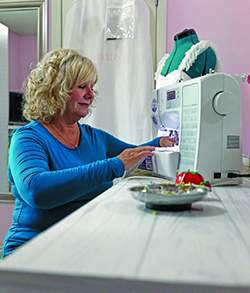
Debbie Miller was drawn to sewing as a child. Her fascination gave way to her longtime work as a talented seamstress. She shared her expertise teaching sewing to junior and senior high schoolers in South America while on a church mission trip with her husband, Chris.
The couple has made annual mission trips over seven years to Ecuador, Haiti and Africa. Their humanitarian travels were abruptly put on a nearly three year hold in February 2020 due to COVID-19 travel restrictions. A year later, in February 2021, Debbie was diagnosed with breast cancer.
How she faced what might lie ahead is thanks to her practical nature. “I don’t wait until something is a crisis before I deal with it,” said Debbie, 63, of Kansas City, MO. “I try to do what I can to fix something instead of waiting until a situation becomes out of control. Breast cancer put my life on hold, but I find peace of mind in being realistic.”
Early Detection
In Debbie's Own Words
"Breast cancer put my life on hold, but I find peace of mind in being realistic."
Debbie shares how yearly mammogram screenings helped catch her cancer early.
Proof of that sensibility is Debbie’s dedication to having yearly mammogram screenings at North Kansas City Hospital’s Women’s Imaging Center. The center, an American College of Radiology Breast Imaging Center of Excellence, staffs expert radiologists; nurses, including a breast cancer nurse navigator; and technologists. Debbie’s screening in October 2019 was negative, but her screening 15 months later showed a subtle change. She returned the following week for more detailed diagnostic imaging and then a breast biopsy via ultrasound.
The biopsy revealed Debbie had two types of cancer. As the name — invasive ductal carcinoma (IDC) — implies, Debbie’s cancer started in her milk ducts and had begun to spread to surrounding breast tissue. About 80% of all cancers are IDC. If untreated, IDC can spread to the lymph nodes. Debbie also was diagnosed with intermediate grade ductal carcinoma in-situ, which means the cells lining her milk ducts had become cancer cells but had not spread into her breast tissue.
“Debbie is a great example of the need to get regular screening mammograms,” said Ashley Holly, MD, Debbie’s general surgeon with Meritas Health Surgery & Trauma. “She caught her cancer at an early stage — before it had spread to her lymph nodes.”
Christopher Formen, MD, a radiologist with Northland Radiology, noted the value of early detection. “Missing even a couple of annual mammogram screenings is enough time for a cancer to grow,” Dr. Formen added. “If you diagnose breast cancer when it’s small and hasn’t spread, the chances for survival are 90%-95%. Time is of the essence.”
Comforting Care
Schedule Your Mammogram
Women should begin annual breast cancer screenings at age 40. Those with a family history of breast cancer should begin yearly mammograms 10 years earlier than the age of the diagnosed family member or at age 40, which ever comes first.
Debbie’s family medicine physician, Rozella Ranes, MD, with Meritas Health Gashland, referred Debbie to Dr. Holly. “Dr. Ranes knew all the steps I would go through and set me on a good path when she referred me to Dr. Holly,” Debbie said.
After consulting with Dr. Holly about her options, which entailed the possibility of two lumpectomies, Debbie underwent surgery for a right breast lumpectomy on Feb. 24, 2021. A tiny clip inserted during her previous biopsy and wire localization inserted before her surgery pinpointed Debbie’s microscopic-size breast cancer for Dr. Holly to remove the mass. She also performed a sentinel node biopsy, which on pathology ruled out the presence of cancer in Debbie’s lymph nodes.
“Although there was a lot of information to take in, Dr. Holly was very comforting,” Debbie said. “When I asked her what she recommended, I went with her recommendation because I knew she understood everything I would go through.”
Because Debbie’s post-surgery pathology of her invasive cancer showed cancer cells at the margins or edges of her mass, Dr. Holly performed a second lumpectomy on March 5, 2021, which showed no residual invasive cancer. The amount of tissue removed in a lumpectomy can vary, but some healthy tissue surrounding the mass is removed to ensure all the cancer is removed.
Debbie did not require chemotherapy because her cancer had not spread. To reduce the chance of her cancer returning, she underwent 20 rounds of radiation in May 2021. The hospital’s oncology partnership with The University of Kansas Cancer Center provides patients with access to world-class cancer care and state-of-the-art radiation therapy on the NKCH campus. “Postoperative radiation following breast conservation surgery for breast cancer has been shown to reduce the risk of recurrence,” said Ajay Tejwani, MD, radiation oncologist with The University of Kansas Cancer Center. “Over time, treatments have gotten shorter and more targeted, and techniques have focused on reducing radiation exposure to surrounding organs.”
Because Debbie’s cancer was hormone receptor-positive, she began taking tamoxifen. This medication blocks estrogen and progesterone hormones and thus reduces the risk of breast cancer returning, but, like many, she could not tolerate the side effects of excessive tiredness and brain fog and stopped the medication. She is continuing to see her oncologist and radiation oncologist twice a year for two years to monitor her health.
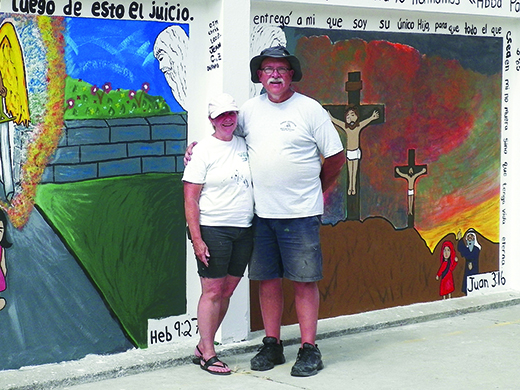
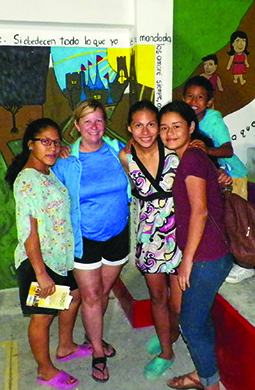
Turned a Corner
In January, Debbie returned to NKCH for her annual mammogram screening. “My screening was negative,” Debbie smiled. “We are keeping an eye on things. I’m doing my part. I eat organically, and I’m back exercising after stopping the medication that made me so weary.”
In October, Debbie and Chris will return to their life’s work. They will make their fourth mission trip to Ecuador, where they will paint an entire shekinah or spiritual home. “I feel I’ve had a good ending, and now the most important thing my husband and I can do in our mission trips is to develop relationships and share the word of God.”
Related Articles

March 8, 2020
3 Sneaky IBS Triggers
For people with irritable bowel syndrome, spring may spark a flare-up in symptoms

May 30, 2024
5 Nutrition Tips for a Healthier Lifestyle
Healthy eating and proper nutrition play a big part in maintaining good health. Here's how to improve your nutrition habits.
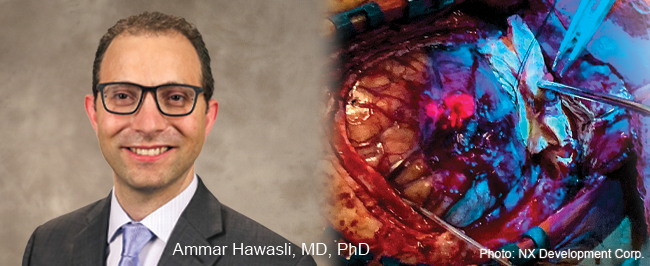
July 7, 2021
5-ALA Fluorescence Guides Neurosurgeons for More Complete Resections
Neurosurgeons Ammar Hawasli, MD, PhD, and Stephen Reintjes Jr., MD, with Meritas Health Neurosurgery, are now using a progressive treatment that allows for the more precise removal of malignant gliomas and glioblastomas.

